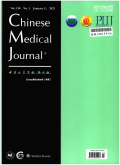Clinical application and mechanism of traditional Chinese medicine in treatment of lung cancer
Clinical application and mechanism of traditional Chinese medicine in treatment of lung cancer
摘要Lung cancer is a malignant tumor characterized by a rapid proliferation rate, less survivability, high mortality, and metastatic potential. This review focuses on updated research about the clinical application of traditional Chinese medicine (TCM) as an adjuvant therapy to lung cancer treatment and the mechanisms of TCM effect on lung cancer in vitro and in vivo. We summarized the recent 5 years of different research progress on clinical applications and antitumor mechanisms of TCM in the treatment of lung cancer. As a potent adjuvant therapy, TCM could enhance conventional treatments (chemotherapy, radiation therapy, and epidermal growth factor receptors [EGFRs] tyrosine kinase inhibitors [TKIs]) effects as well as provide synergistic effects, enhance chemotherapy drugs chemosensitivity, reverse drug resistance, reduce adverse reactions and toxicity, relieve patients’ pain and improve quality of life (QOL). After treating with TCM, lung cancer cells will induce apoptosis and/or autophagy, suppress metastasis, impact immune reaction, and therapeutic effect of EGFR-TKIs. Therefore, TCM is a promisingly potent adjuvant therapy in the treatment of lung cancer and its multiple mechanisms are worthy of an in-depth study.
更多相关知识
abstractsLung cancer is a malignant tumor characterized by a rapid proliferation rate, less survivability, high mortality, and metastatic potential. This review focuses on updated research about the clinical application of traditional Chinese medicine (TCM) as an adjuvant therapy to lung cancer treatment and the mechanisms of TCM effect on lung cancer in vitro and in vivo. We summarized the recent 5 years of different research progress on clinical applications and antitumor mechanisms of TCM in the treatment of lung cancer. As a potent adjuvant therapy, TCM could enhance conventional treatments (chemotherapy, radiation therapy, and epidermal growth factor receptors [EGFRs] tyrosine kinase inhibitors [TKIs]) effects as well as provide synergistic effects, enhance chemotherapy drugs chemosensitivity, reverse drug resistance, reduce adverse reactions and toxicity, relieve patients’ pain and improve quality of life (QOL). After treating with TCM, lung cancer cells will induce apoptosis and/or autophagy, suppress metastasis, impact immune reaction, and therapeutic effect of EGFR-TKIs. Therefore, TCM is a promisingly potent adjuvant therapy in the treatment of lung cancer and its multiple mechanisms are worthy of an in-depth study.
More相关知识
- 浏览0
- 被引62
- 下载0


相似文献
- 中文期刊
- 外文期刊
- 学位论文
- 会议论文



 换一批
换一批 换一批
换一批



